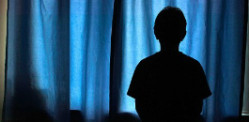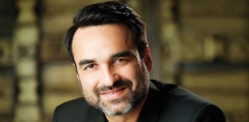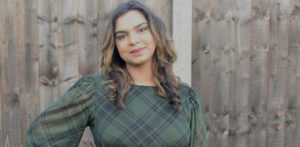"This is what passes for relationships and sex education"
Rishi Sunak has announced a review into how sex education is taught in schools in England following concerns that children are being exposed to “inappropriate” content.
The Department for Education (DfE) will carry out the review.
Since September 2020, Relationships, Sex and Health Education (RSHE) has been compulsory in schools.
Primary school pupils must be taught “key building blocks of healthy, respectful relationships” as part of the national curriculum.
According to official guidelines, secondary school pupils “should be taught the facts and the law about sex, sexuality, sexual health and gender identity in an age-appropriate and inclusive way”.
Schools are allowed to invite external agencies to teach these subjects if safeguarding rules are followed. But guidance states external groups “should enhance and not replace” teaching by school staff.
When running for the Conservative leadership, Mr Sunak promised to strengthen guidance on sex and relationship education in school.
Speaking at Prime Minister’s Questions, Mr Sunak said:
“Our priority should always be the safety and wellbeing of children.
“We are bringing forward a review of RSHE statutory guidance and we will start our consultation as soon as possible.”
The announcement came after more than 50 Conservative MPs wrote to the Prime Minister, claiming “children are being indoctrinated with radical and unevidenced ideologies about sex and gender”.
Tory MP Miriam Cates told the Commons:
“Graphic lessons on oral sex, how to choke your partner safely and 72 genders. This is what passes for relationships and sex education in British schools.
“Across the country, children are being subjected to lessons that are age-inappropriate, extreme, sexualising and inaccurate, often using resources from unregulated organisations that are actively campaigning to undermine parents.
“This is not a victory for equality, it is a catastrophe for childhood.”
Ms Cates questioned the standards of sex education but does she have a point?
Impact of Pornography

A study revealed that students are not being taught about the impact of pornography and dangerous relationships.
The study also revealed that young people feel they have seen no improvement in the quality of sex education they receive, and current teaching fails to tackle modern harms.
Lucy Emmerson, the director of the Sex Education Forum, an umbrella body RSE charity, said the government had failed to deliver on promised national investment and training.
Over one thousand students in England were surveyed and of the 16-17-year-olds, 58% thought the issue of power imbalances in relationships was being either completely missed or not taught sufficiently.
The same percentage thought this was also the case for pornography.
Fifty-four per cent said teaching about healthy relationships was missing or inadequate and 55% thought they were not taught enough about the attitudes and behaviour of boys and men towards women and girls.
This came after it was revealed that one in 10 children had watched pornography by the time they are nine years old.
Seventy-nine per cent have seen pornography involving violence by the age of 18, while one in three young people had actively looked for depictions of sexual violence.
Ms Emmerson says: “The urgency of providing that education to young people just couldn’t be clearer.”
She said the charity was hearing “alarming reports” about the appeal of misogyny to some young men as well as widespread access to pornography among children.
She continued:
“As the years go by, seeing violent sexual acts in pornography is having a knock-on effect on their own behaviour.”
“And yet we know from the research evidence, that relationship and sex education will reduce sexual violence. So we can’t wait.”
Ms Emmerson says research suggests sex education works.
“We’ve got the research, we’ve got the evidence, we’ve got the policies.
“We have to make sure they’re happening in the classrooms, and that teachers have the support they need to be able to do that.”
Meanwhile, Andrea Simon, the director of the End Violence Against Women coalition, said its recent research showed that 80% of girls thought schools needed to do more to support young people’s sex and relationships education and to tackle sexual harassment in schools.
She said: “Schools are not equipped with the training and resources to deliver quality relationships and sex education, even while they have been left to clean up the mess created by tech companies profiting from content by misogynistic influencers like Andrew Tate.”
Resorting to Social Media

Due to the apparent substandard sex education in schools, a lot of people are learning more about sex from TikTok instead.
According to a study, 43% feel they have learnt more on TikTok than in primary and secondary school.
A further 42% believe TikTok is the most accessible platform for health-related content.
Overall, as many as 80% of Brits consume their sex and well-being advice via social media.
Fifty-five per cent of 16-24-year-olds said they learnt more about sex on TikTok compared to 29% across 25-55+.
It is clear that younger generations are increasingly turning to social media for health information.
However, this can be dangerous due to misinformation, which is then spread by showing posts to friends or resharing them.
Forty-three per cent believe the content they view is accurate while 23% believe it is inaccurate. But over half have taken action for their health as a result of a social media post.
Overall, 59% have seen untrue or misleading health information on TikTok, leading to a range of consequences.
One social media user said: “After noticing some irregularities in my vaginal health, I took to TikTok to see what these symptoms might mean and came away convinced that I had chlamydia.
“As I had not had unprotected sex in ages, I assumed I had this STI for at least six months (a time period that can negatively impact women’s fertility).
“I was distraught, confused and scared. I was so convinced I went to a GP who informed me I simply had thrush – a really common yeast infection.
“If I had consulted my GP first instead of jumping on social media I could have saved myself a lot of sleepless nights.”
Following Rishi Sunak’s announcement, the National Association of Head Teachers (NAHT) expressed its concern.
James Bowen, director of policy for NAHT, said: “It is hard to be anything other than deeply concerned by this announcement.
“The overwhelming majority of schools are doing nothing more than following the government’s own statutory guidance when it comes to relationships and sex education.”
Mr Bowen said the current curriculum “was subject to extensive consultation before it was introduced”.
He added: “We have seen no evidence to suggest there is a widespread problem with pupils being presented with age-inappropriate materials and if this were the situation, we would expect it to have been picked up on a case-by-case basis.
“There is a real concern that this is a politically motivated review, rather than one based on the reality of what is happening in the vast majority of schools up and down the country.
“Our appeal to government is to ensure this review is now handled with the care, sensitivity and impartiality it requires and to listen carefully to the most important voices – those of education professionals and pupils.”
The announcement has led to mixed responses, with NAHT dismissing the claims that “inappropriate” content is being shown to children in England.
However, surveys have highlighted that sex education in schools is inadequate, missing out on important topics.
This has resulted in people getting their sex education from elsewhere.






























































